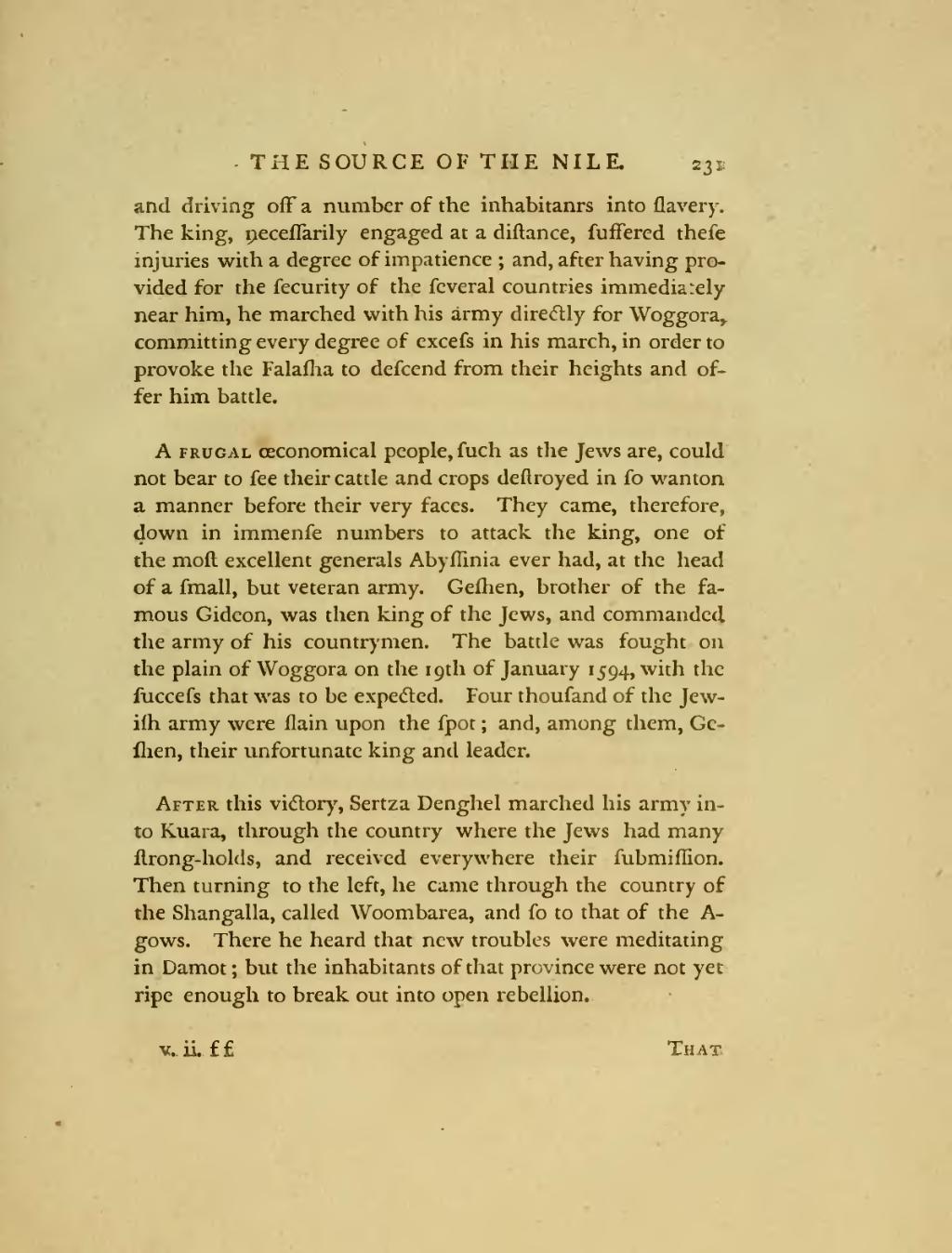and driving off a number of the inhabitants into slavery. The king, necessarily engaged at a distance, suffered these injuries with a degree of impatience; and, after having provided for the security of the several countries immediately near him, he marched with his army directly for Woggora, committing every degree of excess in his march, in order to provoke the Falasha to descend from their heights and offer him battle.
A frugal oeconomical people, such as the Jews are, could not bear to see their cattle and crops destroyed in so wanton a manner before their very faces. They came, therefore, down in immense numbers to attack the king, one of the most excellent generals Abyssinia ever had, at the head of a small, but veteran army. Geshen, brother of the famous Gideon, was then king of the Jews, and commanded the army of his countrymen. The battle was fought on the plain of Woggora on the 19th of January 1594, with the success that was to be expected. Four thousand of the Jewish army were slain upon the spot; and, among them, Geshen, their unfortunate king and leader.
After this victory, Sertza Denghel marched his army into Kuara, through the country where the Jews had many strong-holds, and received everywhere their submission. Then turning to the left, he came through the country of the Shangalla, called Woombarea, and so to that of the Agows. There he heard that new troubles were meditating in Damot; but the inhabitants of that province were not yet ripe enough to break out into open rebellion.
